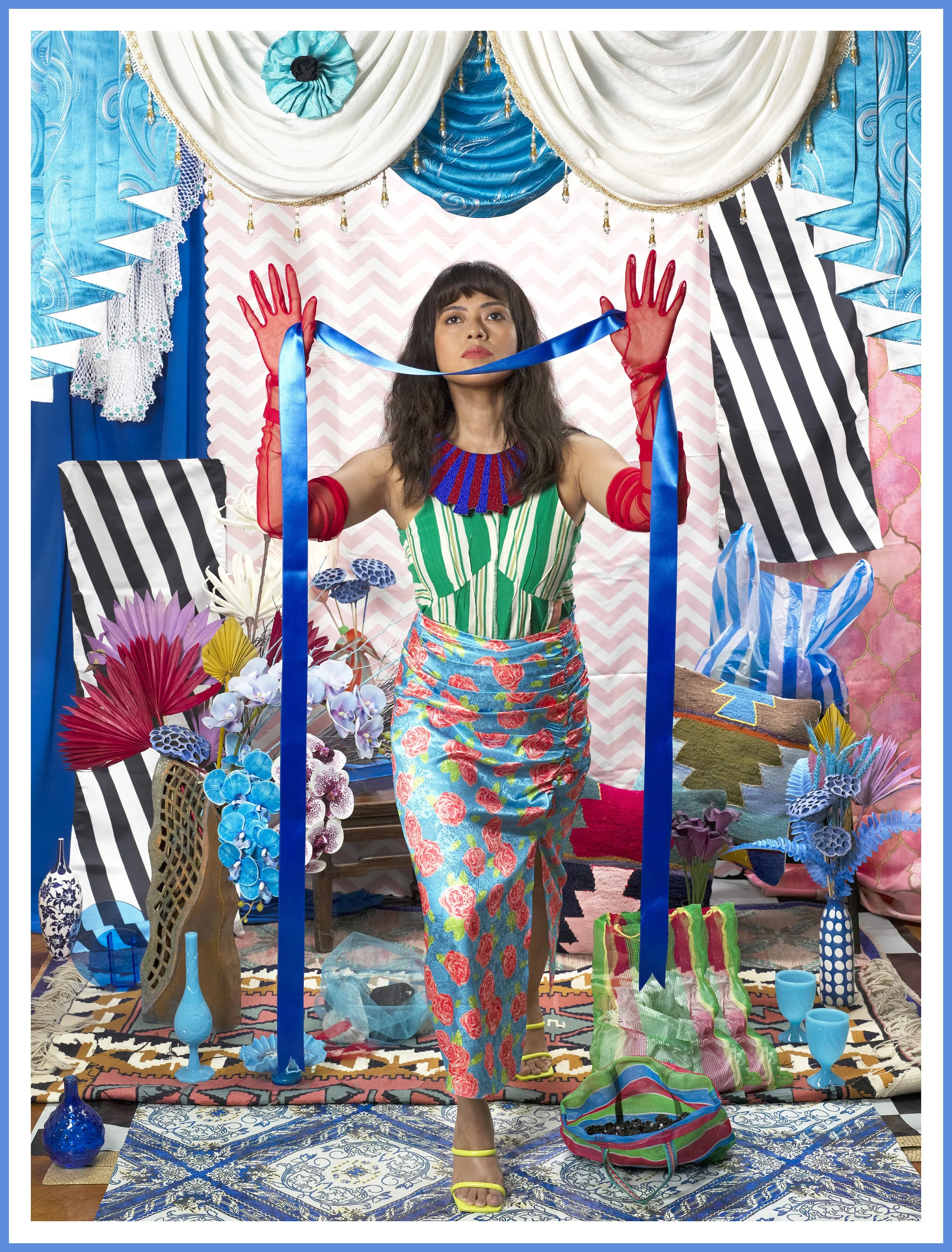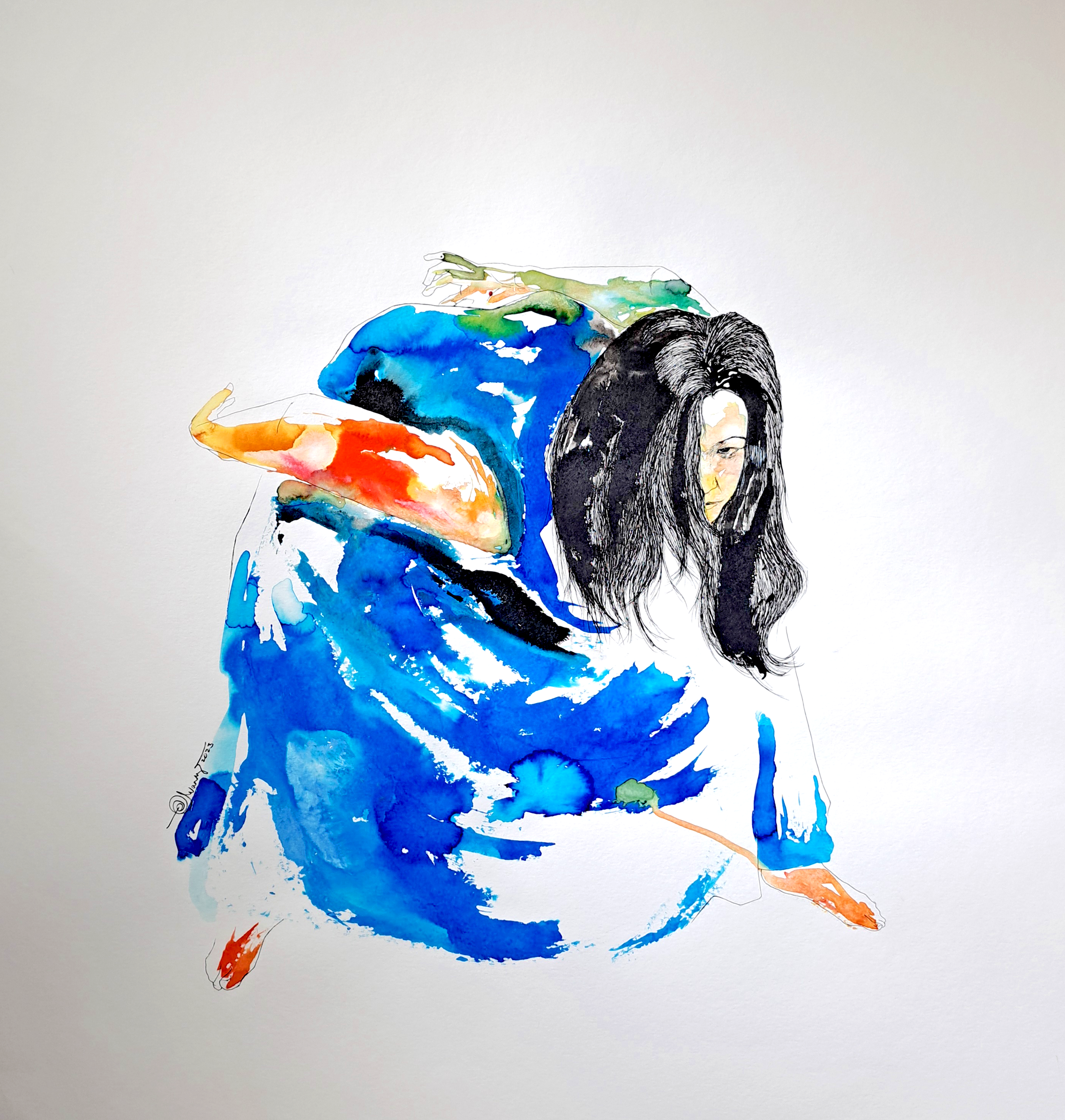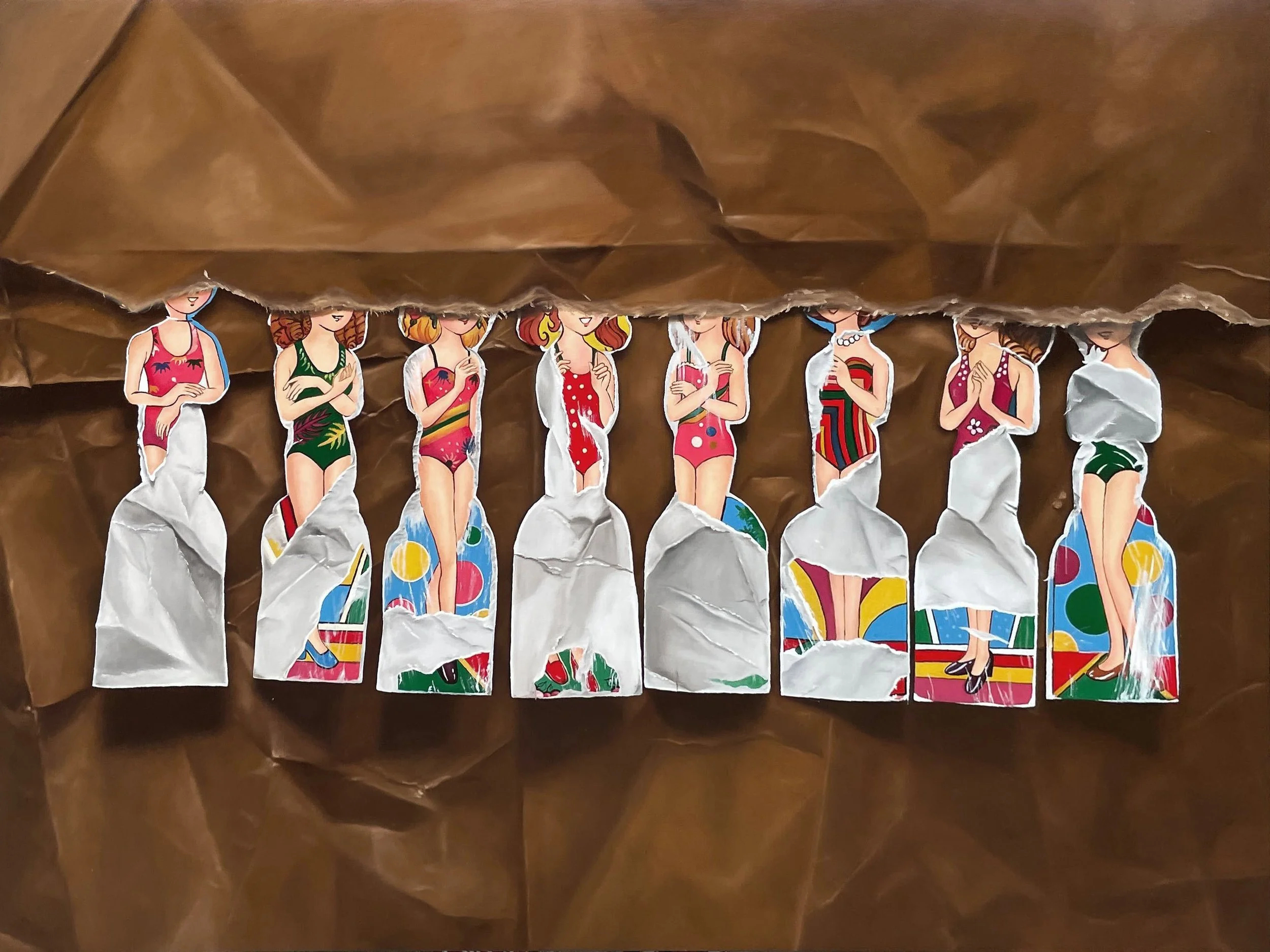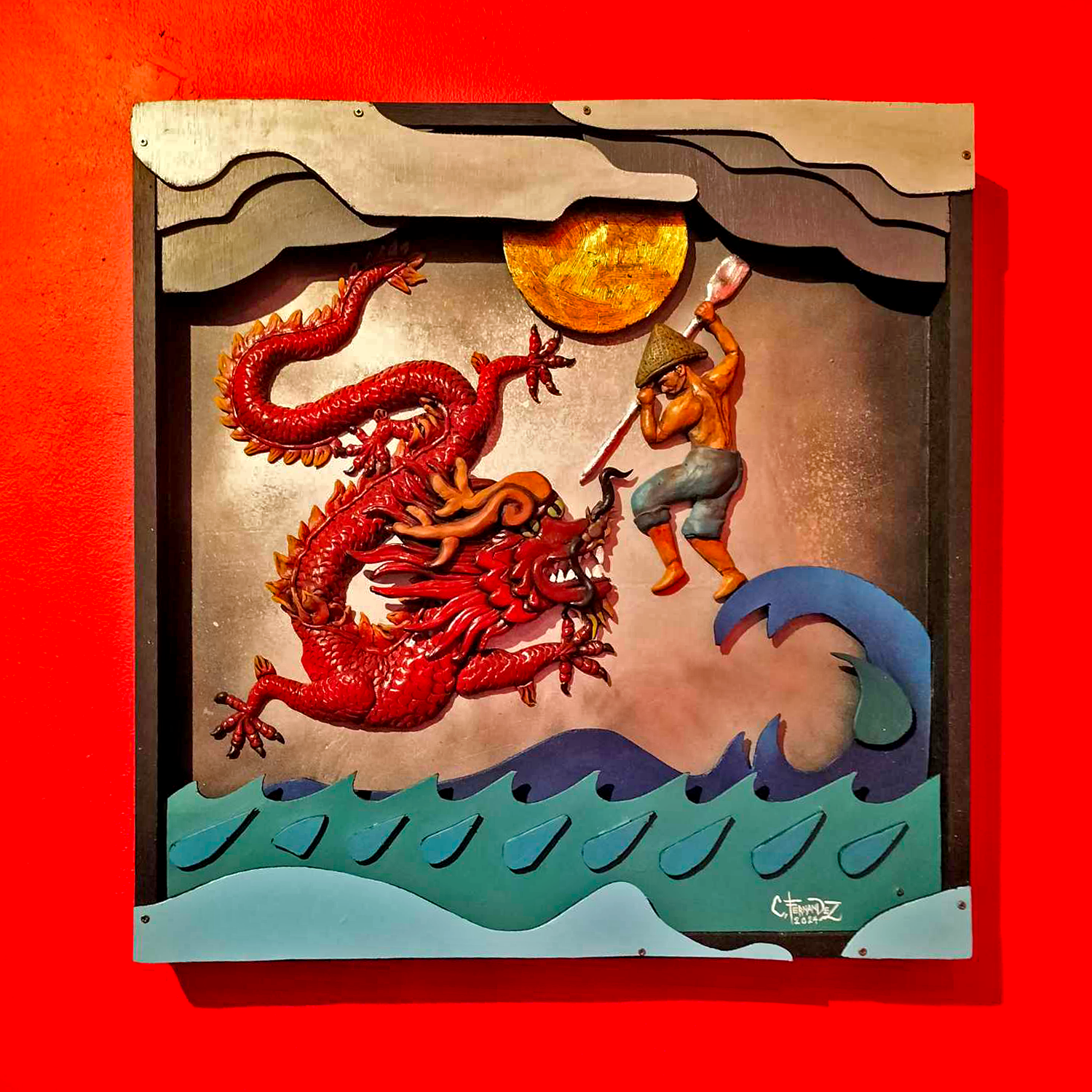Spectacles, Metaphors, and Decolonization: Exhibitions in February 2024
Words Amanda Juico Dela Cruz
February 21, 2024
Mark Orozco Justiniani, "Firewalk" (detail), 2017-2019. Taken by the Artist at the National Gallery Singapore, 2018.
Spectacles could be in a form of grand-scale installations that urge one to step into the void of uncertainties or of women simply taking up space when they were put to the side in the long history of art. Visual metaphors are used to convey what words cannot, whether the artist wishes to convey a particular sense of nostalgia or beyond, or of paradoxical lived experiences. Decolonization is the reclamation of one’s power that was stollen from them. The exhibitions featured this month tackle the above-mentioned themes in their artistic practices.
“Void of Spectacles: Reflections. On Passages Through Time and History” by Mark Justiniani at the Ateneo Art Gallery
Mark Orozco Justiniani, "The Well," 2018. Taken by the Artist at the Ateneo Art Gallery, 2024.
Three of Mark Justiniani’s large-scale Infinity installations dealing with time and histories—both self’s and nation’s stories—are curated together to present how the mind sifts and stores memories. The exhibition begins with Firewalk and ends with Well, both meditates on the phases of life—birth, youth, adulthood, then death. Arkipelago—divided into three modules namely Province, Capital, and Cyclone—weaves the history of Negros Occidental, the artist’s province, with the history of his nation, critiquing power struggle, colonialism, and failed revolutions along the way. The installations invite the viewer to fall into the void, thus confronting fear and awe.
“At the End of the Day” by Cindy Aquino at NO Community-run Space
The photographs are not mere vignettes of nature—close view of flowers that warrants a different kind of appreciation, sea foam resulting from the agitation of water that is frozen in time, and silhouette of branches that barely have leaves on against the bright sky. They are metaphors to Cindy Aquino’s life living with unipolar depression. In Empty series, the artist confronts feeling everything while paradoxically feeling nothing. Waves & Feelings seeks power in what can be done while letting go of things that cannot be controlled. The last series, Fall Into Place, meditates on the coexistence of different emotions.
“The Other Shore” by Wawi Navarroza at Silverlens New York
Wawi Navarroza’s self-portraits are rendered in opulent colors found in fiestas all while incorporating symbolisms, mysteries, and meanings from Chinese screens, Japanese ukiyo-e, Thai Buddhist murals, and Bhutanese thangka paintings as she unlearns the shame and inferiority of Eastern art and reclaims its legacy to the artworld. It is more than a moment of “East meets West” as this is her first solo exhibition in the United States. She examines the individual and the collective while exploring the intimate intersectionality among womanhood, reproduction, and the essence of art. She portrays different female experiences, rebirthing her a thousand or more times.
“Those that form on the surface” by Pancho Alvarez at Altro Mondo
Pancho Alvarez, PATIENCE
Women in loose dresses open their arms wide as if receiving a blessing and their bodies contorting, unapologetic to move and to take up space. Their long hairs sway with their bodies the way the Wild Woman archetype embraces her inner Self, one that is rooted in strength. In one work, the woman poses like a beast, ready to attack or to defend. The look she gives shows how her intuition empowers her. The works of Pancho Alvarez are not only an artistic display, but an attempt to decolonize the Filipino identity, that is, Babaylans as healers and spiritual guides.
“Detachment” by Maribel Magpoc at Art Verité Gallery
Maribel Magpoc, DEFACEMENT
Paper dolls are an inexpensive toy for children. They can be bought in corner stores, making them not only affordable but accessible too for the middle-class. Eventually, paper dolls appeared in magazines and newspapers as advertisements, reinforcing what an ideal woman should look like. From toys to tools seen everyday, now paper dolls are highly sought-after by collectors, especially the vintage ones, making them more valuable than ever. Maribel Magpoc goes beyond the sense of nostalgia here. She presents a juxtaposition of the humble times and the anxieties of today—from being an affordable toy to being a prized possession.
“Enter the Dragon” by Ace Enriquez, Elyen Elyen, Christopher Fernandez, Bryan John Gonzalez, Raymond Kawataki, Kaye Oyek, Paul Eric Roca, Gary Santiago Rojas, AG Saño, and Roman Soleño at Baraks
What’s going on in the West Philippine Sea? With its opening coinciding with the celebration of the Chinese New Year, the Daluyong Artists Network paints the walls of the exhibition space with a shade of red that can be treated as the luckiest color in Chinese culture or as the bloody one in battles. In one work, a fisherfolk with his spear fights against a dragon. Paper boats are scattered in the space reinforcing the demand of the people to assert the state’s right to the disputed territory. The face of Xi Jin Ping is rendered in different satirical forms.







